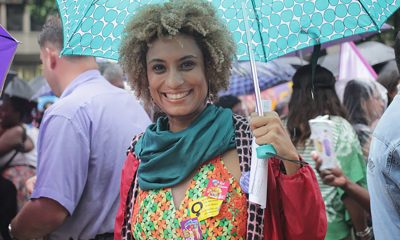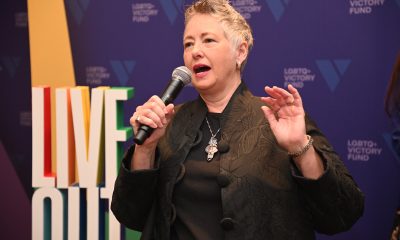South America
Brazilian LGBTQ lawmakers threatened during conference
VoteLGBT organized Brasília gathering
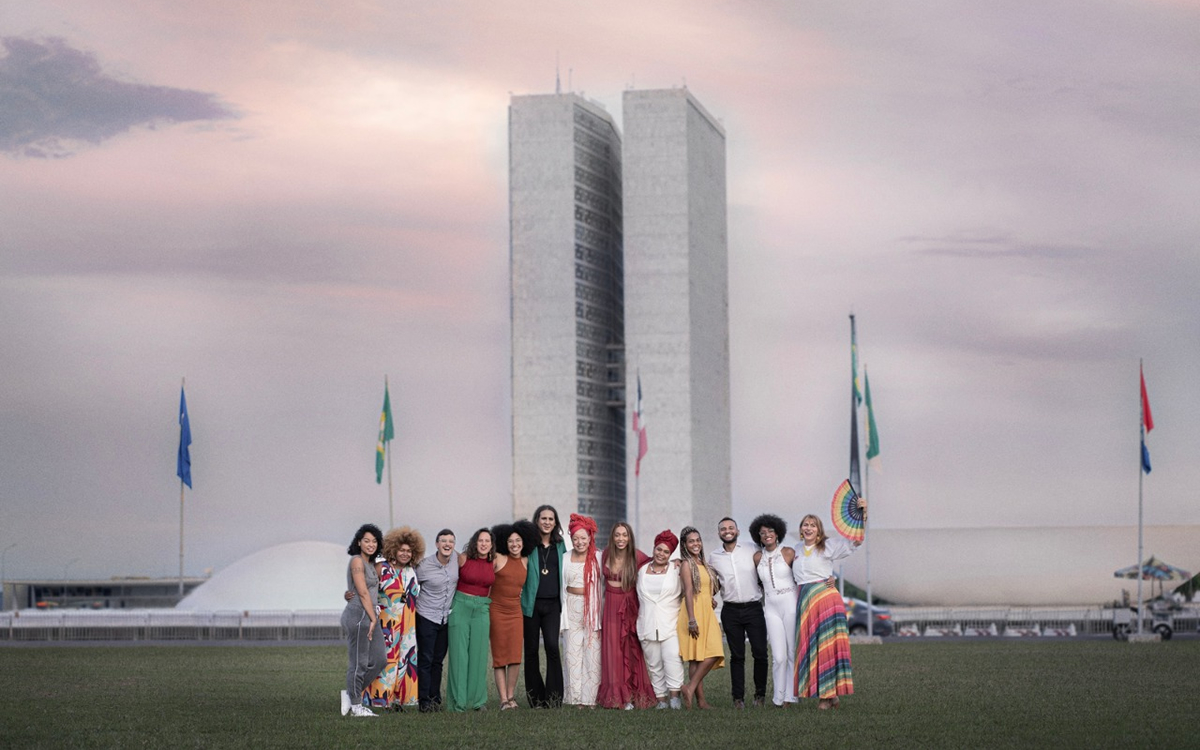
The LGBTQ Victory Institute on Tuesday condemned the threat that Brazilian lawmakers received during a conference in which it participated in the country’s capital.
A press release notes São Paulo Legislative Assemblywoman-elect Thainara Faria, a Black bisexual woman who is a member of President Luiz Inácio Lula da Silva’s Workers’ Party, on Jan. 20 “received a threatening, racist and LGBT-phobic email that indicated that they physical integrity of the representatives-elect at our event was at risk.”
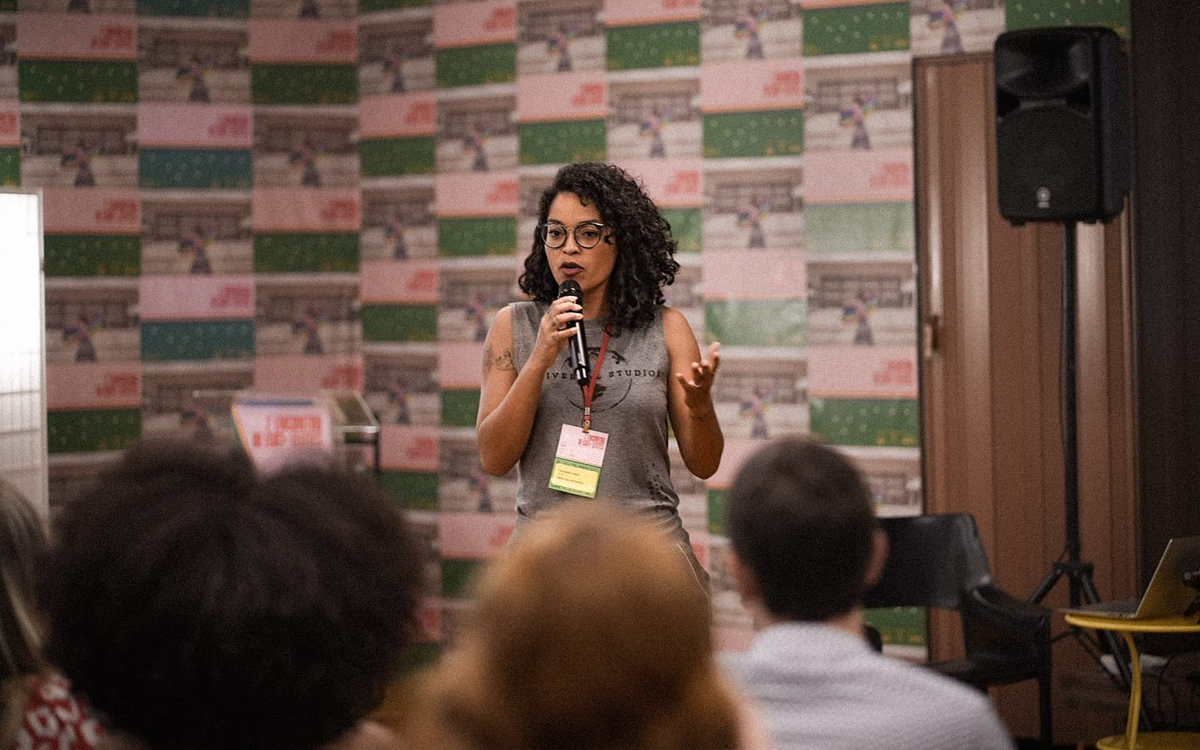
Faria is one of the 18 openly LGBTQ congressional and state legislative candidates who won election last October. She, along with transgender Congresswomen Erika Hilton and Duda Salabert and 11 of the other elected officials, attended the first-of-its-kind conference that took place in Brasília.
The Victory Institute notes VoteLGBT, the main organizer that seeks to increase the number of LGBTQ and intersex people in Brazilian politics, reached out to Fábio Félix, a gay member of the Socialism and Liberty Party who is a member of the Federal District’s Legislative Chamber, and Congresswoman Erika Kokay, a member of the Workers Party who represents the Federal District, after Faria received the threat. Félix and Kokay then contacted local authorities who provided conference participants with a police escort.
Officers patrolled the conference venue, and organizers increased private security. The Victory Institute also notes two Brazilian government ministries — the Human Rights and Citizenship Ministry and the Justice and Public Safety Ministries — have begun to investigate the threat.
The Equal Rights in Action Fund co-organized the conference along with VotoLGBT and the Victory Institute. Associaçao Nacional de Travestis e Transexuais (National Association of Travestis and Transsexuals), a Brazilian trans rights group known by the acronym ANTRA, and Associação Brasileira de Lésbicas, Gays, Bissexuais, Travestis, Transexuais e Intersexos (Brazilian Association of Lesbians, Gays, Bisexuals, Travestis, Transsexuals and Intersex People) are among the other groups that sponsored the gathering.
Faria, along with the other elected officials who attended the conference and the groups that organized and sponsored it, in a joint statement said “fascism uses terror in an attempt to paralyze and weaken our fight.”
“They attack us because of our project is powerful,” it reads. “We understand that the best response to this attack — in addition to quickly protecting the threatened representative, reinforcing the security at the event and contacting the competent authorities — is to continue with our agenda and scheduled programming.”
The conference took place less than two weeks after thousands of former President Jair Bolsonaro supporters stormed the Brazilian Congress, Supreme Court and presidential palace.
Bolsonaro, a member of the right-wing Liberal Party, sought to discredit the country’s electoral system ahead of last October’s presidential election. Da Silva defeated him in the second round, but Bolsonaro never publicly acknowledged he lost. Bolsonaro flew to Florida two days before Da Silva’s inauguation, which took place on Jan. 1.
Both Hilton and Salabert received threats during their respective campaigns.
Hilton, a Black travesti and former sex worker who was a member of the São Paulo Municipal Council before she won her seat in Congress, acknowledged concerns about her safety when she spoke with the Washington Blade shortly after her election. A security guard stood a few feet away from her while she spoke with this reporter at a pro-Da Silva rally in São Paulo’s Praça Roosevelt.
“I am afraid, but I think that this fear is not going to be able to stop me,” Hilton told the Blade. “It is the fuel that motivates me.”
Former Congressman Jean Wyllys, who is openly gay and a vocal Bolsonaro critic, in 2019 resigned and fled the country after he received death threats.
Rio de Janeiro Municipal Councilwoman Marielle Franco, a bisexual woman and single mother of African descent who grew up in a favela near the city’s international airport, and her driver, Anderson Gomes, were murdered on March 14, 2018. Bolsonaro was not president at the time, but one of the two former police officers who have been arrested and charged with the murders lived in the same condominium complex in Rio’s exclusive Barra da Tijuca neighborhood in which the now former president lives. Franco’s widow, Rio Municipal Councilwoman Mônica Benício, last March described this fact to the Blade as “just a coincidence.”
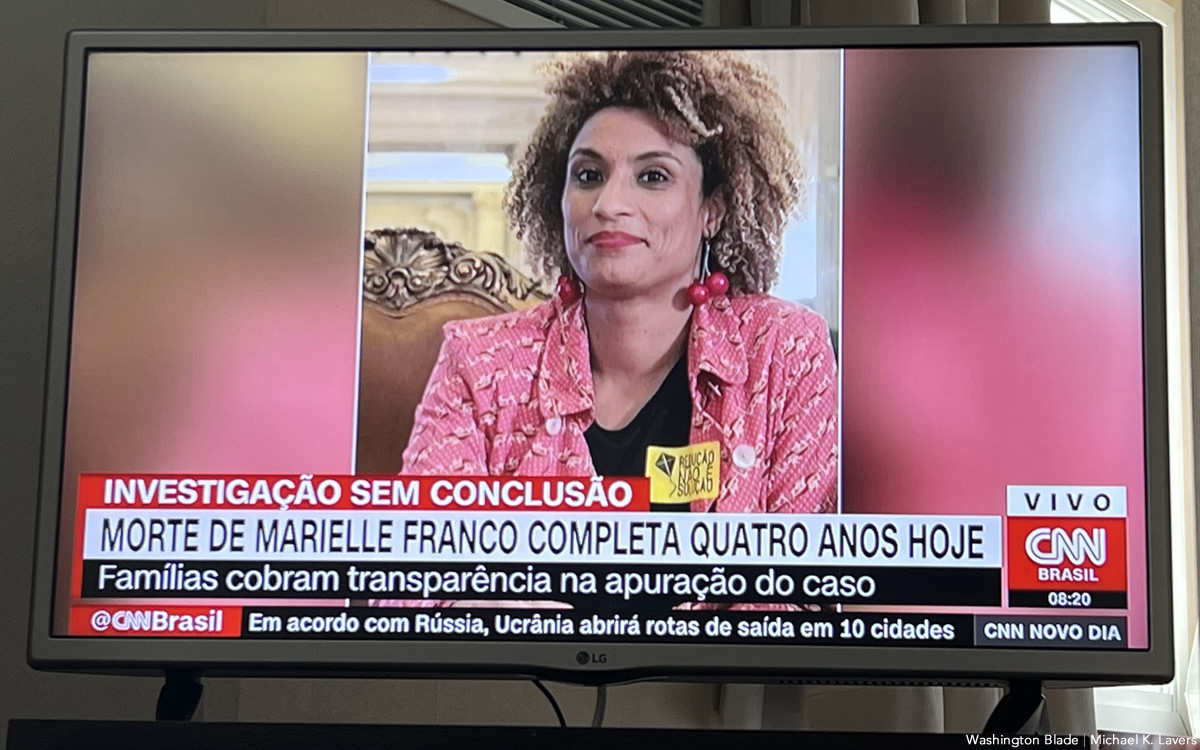
‘We will continue fighting for a democracy for all’
The joint statement that Hilton and the other conference participants signed states the threats against them is “a good example of how political violence works, seeking to silence our voices.”
“Despite the sabotage of many different actors, including some in their own parties, LGBT+ candidates received more than 3.5 million votes in 2022,” it reads. “Traditional politics needs our voices, because we do not advocate for LGBT+ issues alone; we propose innovative public policies to fight hunger, lack of housing, discrimination and all of the evils plaguing our people.”
“LGBT+ political strategies will continue to flourish in all spaces, despite threats to any elected representative,” adds the statement. “Attacks will be met with investigations and accountability. United and strong, we will continue fighting for a democracy for all.”
South America
Daniel Zamudio murderer’s parole request denied
Raúl López Fuentes convicted of murdering gay man in Chilean capital in 2012
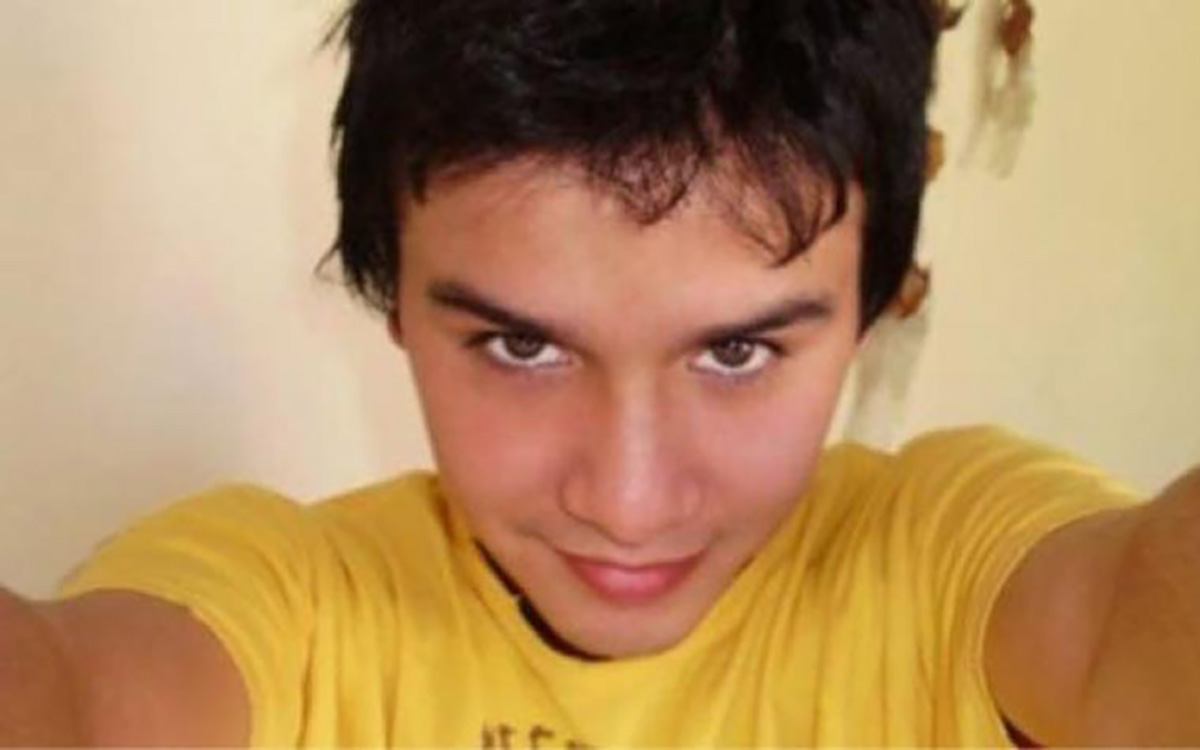
Chile’s Parole Commission on Tuesday rejected a request to allow one of the four men convicted of murdering Daniel Zamudio in 2012 to serve the remainder of his sentence outside of prison.
Raúl López Fuentes earlier this month asked the commission to release him on parole. Zamudio’s family and members of the Movement for Homosexual Integration and Liberation, a Chilean LGBTQ rights group, had gone to court to block the request.
Among the arguments put forward that influenced the commission’s decision is what Movilh categorized as his “high risk of recidivism, linked to the adherence of an antisocial behavior with a tendency to minimize his acts transgressing social norms.”
The commission pointed out that López has psychopathic traits because he is aware of the damage he did to Zamudio and his family.
“In addition, he maintains a high risk of violence, not being advisable to grant the benefit,” the report said.
Zamudio was a young Chilean man who became a symbol of the fight against homophobic violence in his country and around the world after López and three other young men with alleged ties to a neo-Nazi group beat him for several hours in Santiago’s San Borja Park on March 2, 2012. Zamudio succumbed to his injuries a few weeks later.
The attack sparked widespread outage in Chile and prompted a debate over homophobia in the country that highlighted the absence of an anti-discrimination law. Lawmakers in the months after Zamudio’s murder passed a law that bears Zamudio’s name.
López in 2013 received a 15-year prison sentence after he was convicted of killing Zamudio. Patricio Ahumada received a life sentence, while Alejandro Angulo Tapia is serving 15 years in prison. Fabían Mora Mora received a 7-year prison sentence.
Zamudio’s mother, Jacqueline Vera, exclusively told the Washington Blade after the commission rejected López’s request that “we as a family are calmer.”
“Even with my husband we were in a lot of pain at the beginning. It was like a blow of very strong emotions, so we tried to stay calm because we still had to solve the problem,” Vera said. “We had four days to solve it.”
López will have to serve the remaining three years of his sentence before his release.
“I will continue working to improve the Zamudio Law and so that this murderer does not leave prison because he is a danger to society, he does not represent repentance and people like this cannot be free,” she said. “For the same reason, we have to work so that hate crimes have life imprisonment and that is what we will concentrate on.”
South America
Man convicted of killing Daniel Zamudio in Chile seeks parole
Raúl López Fuentes in 2013 sentenced to 15 years in prison

One of the four men convicted of murdering a young gay man in the Chilean capital in 2012 is seeking parole.
Raúl López Fuentes in 2013 received a 15-year prison sentence after he was convicted of killing Daniel Zamudio.
Zamudio was a young Chilean man who became a symbol of the fight against homophobic violence in his country and around the world after López and three other young men with alleged ties to a neo-Nazi group beat him for several hours in Santiago’s San Borja Park on March 2, 2012. Zamudio succumbed to his injuries a few weeks later.
The attack sparked widespread outage in Chile and prompted a debate over homophobia in the country that highlighted the absence of an anti-discrimination law. Lawmakers in the months after Zamudio’s murder passed a law that bears Zamudio’s name.
Patricio Ahumada received a life sentence, while López and Alejandro Angulo Tapia are serving 15 years in prison. Fabían Mora Mora received a 7-year prison sentence.
López has asked the Seventh Santiago Guarantee Court to serve the last three years of his sentence on parole. Zamudio’s family and Jaime Silva, their lawyer who works with the Movement for Homosexual Integration and Liberation, oppose the request.
Movilh represented Zamudio’s family after his murder.
Zamudio’s mother, Jacqueline Vera, during an exclusive interview with the Washington Blade said López’s petition “provoked all the anguish, all the commotion of his time.”
“It was very cruel because in fact two days before we were at Daniel’s grave, where it was 12 years since his death and the beating,” said Vera. “He really does not deserve it.”
“We have gone through very difficult moments,” she added.
The mother, who later created a foundation to eradicate discrimination in Chile, was emphatic in indicating that she and her family “do not accept the release of this guy because he is a danger to society and a danger to ourselves.”
“At the last hearing where they were sentenced, they told us that we are going to remember them when they get out,” said Vera. “They threatened us with death. There is a video circulating on social networks where they were in front of me and they laughed and made fun of me. They told me that I remembered that I had three more children.”
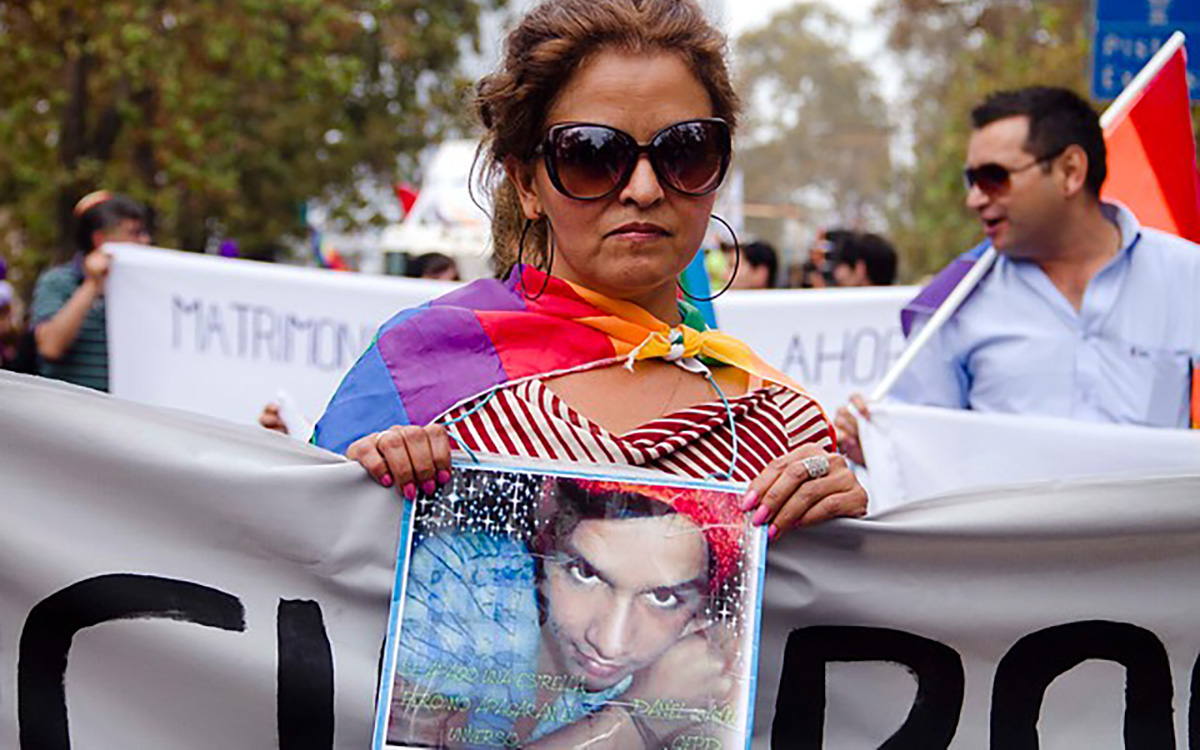
Regarding the possibility that the Chilean justice system will allow López to serve the remaining three years of his sentence on parole, Vera said “with the benefits here in Chile, which is like a revolving door where murderers come and go, it can happen.”
“In any case, I don’t pretend, I don’t accept and I don’t want (López) to get out, I don’t want (López) to get out there,” she said. “We are fighting for him not to get out there because I don’t want him to get out there. And for me it is not like that, they have to serve the sentence as it stands.”
LGBTQ Chileans have secured additional rights since the Zamudio Law took effect. These include marriage equality and protections for transgender people. Advocacy groups, however, maintain lawmakers should improve the Zamudio Law.
“We are advocating for it to be a firmer law, with more strength and more condemnation,” said Vera.
When asked by the Washington Blade about what she would like to see improved, she indicated “the law should be for all these criminals with life imprisonment.”
South America
Argentine president announces state institutions can no longer use inclusive language
Activists condemn Javier Milei’s anti-LGBTQ policies
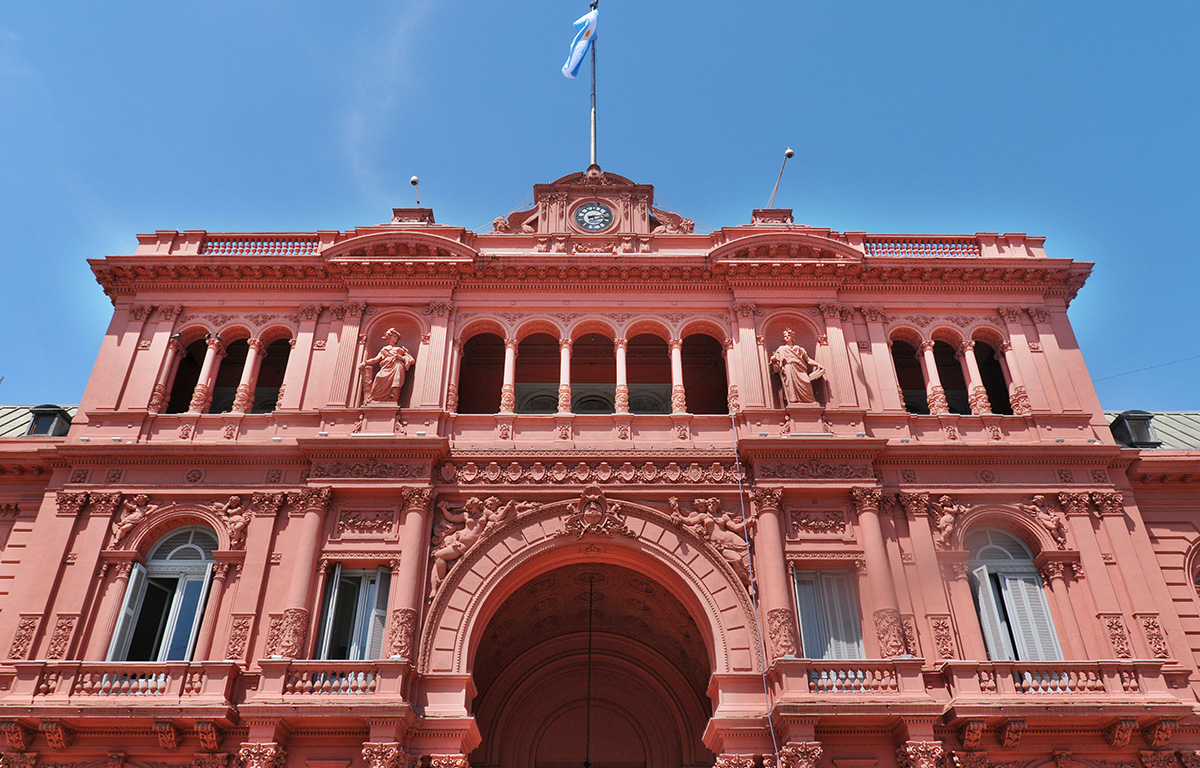
In a move that has generated concern and criticism throughout the country, Argentine President Javier Milei has announced government institutions can no longer use inclusive language and gender-specific references in their public policies.
This decision comes on top of other controversial measures, such as the closure of the Women, Gender and Diversity Ministry, and an announcement to shutter the country’s National Institute against Discrimination, Xenophobia and Racism.
Former Diversity Undersecretary Alba Rueda, a transgender woman who was the country’s special envoy for LGBTQ issues under former President Alberto Fernández’s government, and gay Congressman Esteban Paulón, in exclusive interviews with the Washington Blade discussed the impact of Milei’s announcement and the impact it will have on Argentine society in terms of human rights and protections for queer people.
“The State had been using the gender perspective and inclusive language to make visible the presence of women in key roles and to recognize nonbinary identities,” Rueda said. “This measure not only erases those advances, but also excludes people who are already recognized by the State in their nonbinary gender identities.”
Rueda noted Congress more than a decade ago “passed the gender identity law, which states in its first article that the State will respect the gender identity of all persons. After changes were made in the structure of the State to be able to generate identity documents, a series of court rulings that recognize nonbinary people in their nonbinary identity arose in 2016, and this (and) that remained unresolved during the Macrista government without recognizing the identity of nonbinary people.”
She pointed out Fernández’s government in 2021 issued Decree 746, which recognized “people with nonbinary identities, gender fluid and those who avoid naming their gender before the State.”
“The State already recognizes this citizenship and here comes that the prohibition of inclusive language excludes in the way of naming people who are already recognized by the State and that effectively the recognition of their gender identity is the condition of not being binary,” said Rueda. “So, the decree is in force, the law is in force, there are nonbinary people with their documents, but who today are not being named in all state documents.”
Paulón said the prohibition of inclusive language is a gesture of violence towards LGBTQ communities.
“Inclusive language has given entity and identity to an important part of the Argentine population,” he said. “This measure represents an act of harassment and violence towards those who identify with inclusive language, including the queer and LGBTQ+ collective.”
“Language is a social and cultural construction, and in Argentina today inclusive language represents and has given entity and identity to an important segment of the population and to a series of social collectives,” added Paulón. “Therefore, something that is not created by decree can hardly be eliminated by decree.”
The congressman told the Blade that Milei’s government announcement was “something that was clearly going to happen.”
“I don’t see the government campaigning in inclusive language or celebrating diversity,” said Paulón.
Milei’s decision has generated intense debate in Argentina, with critics arguing these measures represent a step backwards in the protection of human rights and an attack on diversity and inclusion. Milei’s supporters, on the other hand, defend these measures as part of an effort to promote conservative policies and reinforce national identity.
“It is very serious because it limits the exercise of citizenship and affects the nonbinary population, women and the trans population that is not recognized within the gender binarism,” said Rueda.
She noted Milei during his presidential campaign raised these issues, and has decided to implement policies that harm women and LGBTQ people.
“This is the gravity that is lived today in Argentina, that the Argentine head of state puts in confrontation and reduction of rights to women and LGBTIQ+ people,” Rueda added.
This ban on inclusive language and gender-specific policies has been announced against the context of increased political and social polarization in Argentina. With inflation at alarming levels and an economy in crisis, Milei’s government has sought to consolidate its base by adopting controversial measures that have generated division and unrest in Argentine society.
“That is the institutional and democratic gravity today in Argentina, that the head of state attacks and creates internal enemies and that position is accompanied by the media, amplifying a negative message about our communities,” Rueda said. “Of course that translates into social networks, but it also translates into the attacks that we LGBTIQ+ people experience in the public sphere.”
-

 District of Columbia5 days ago
District of Columbia5 days agoNew D.C. LGBTQ+ bar Crush set to open April 19
-

 District of Columbia5 days ago
District of Columbia5 days agoReenactment of first gay rights picket at White House draws interest of tourists
-

 South America3 days ago
South America3 days agoDaniel Zamudio murderer’s parole request denied
-

 Opinions5 days ago
Opinions5 days agoOpen or closed? No, not your bar tab

